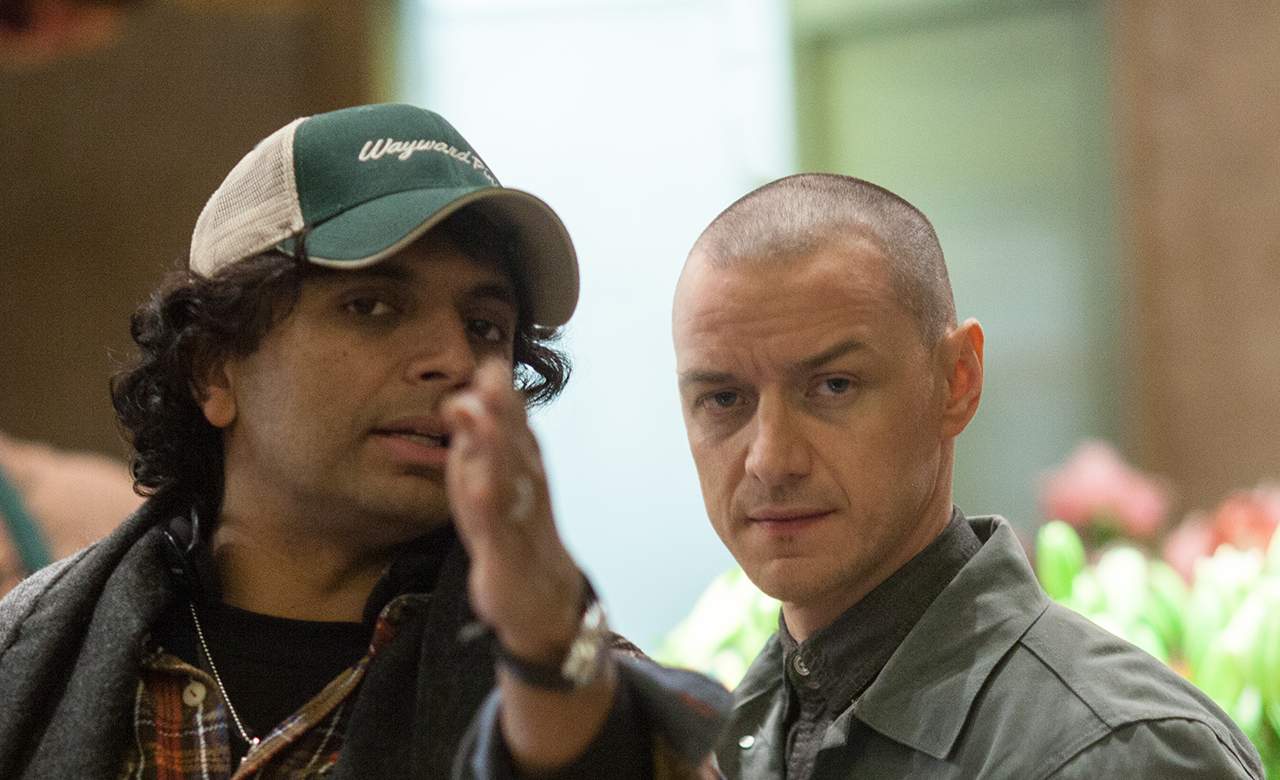Interview: M. Night Shyamalan on His New Film Split, Plot Twists and Taking Risks
His latest film features James McAvoy fielding 23 different personalities.
M. Night Shyamalan is back. Of course, he never really went anywhere — he just took a detour from familiar territory. After coming to fame with his third feature — the dead people-filled, six-time Oscar nominee The Sixth Sense — the filmmaker made a name for himself with supernatural-heavy, twist-oriented efforts such as Unbreakable, Signs and The Village. When he switched to bigger budget sci-fi with The Last Airbender and Smith (as in Will and Jaden) family vehicle After Earth, it was a definite change of pace.
Then came The Visit, the low-budget 2015 flick that once again toyed with Shyamalan's recognisable elements, and became a huge financial hit in the process. Consider that dipping a toe back into the water, but don't go thinking his latest film, Split, is the writer/director simply offering up more of the same. Yes, the James McAvoy-starring movie is moody and unnerving, embraces a distinctive concept, and balances psychology and philosophy — all Shyamalan trademarks. A claustrophobic kidnapping tale with a lead character boasting 23 different personalities (plus a 24th trying to burst out), as well as an engrossing story that doesn't merely hinge upon late-stage revelations, it's also among his best work.
Split commences with Kevin (McAvoy) abducting three teenagers (Anya Taylor-Joy, Haley Lu Richardson and Jessica Sula) and taking them to an underground bunker, all while trying to fend off the strict Patricia and the creepy Dennis, as well as a few others. The fact that all of Kevin's foes exist inside his head, alongside nine-year-old Hedwig and plenty more, sets the scene for a tense, largely one-setting horror thriller — and the chance for McAvoy to demonstrate the full extent of his acting chops.
With Split now in cinemas, we chatted with Shyamalan about working on the story for 15 years, finding the right actor to play such a complicated part, and other film twists that proved influential.
ON THE ORIGINS OF SPLIT
"It's an unusual story because I wrote part of the story a long time ago — fifteen, sixteen years ago. It was part of another screenplay, and I pulled it out. I decided to make it its own movie — I hoped to make it as its own movie. And I guess, you know, I got caught up making other movies and it just always kind of sat there. And now recently felt like the perfect time to make it for me, so I started to return to it and think about it as, well, who is this character, and what would happen? So I started outlining it, and I think it really lent itself to the types of movies that I'm doing both practically and creatively. One, practically, that it is very contained, which I'm leaning towards those kind of movies right now. And then, it's kind of dark, comedic, suspense — I'm in that headspace."
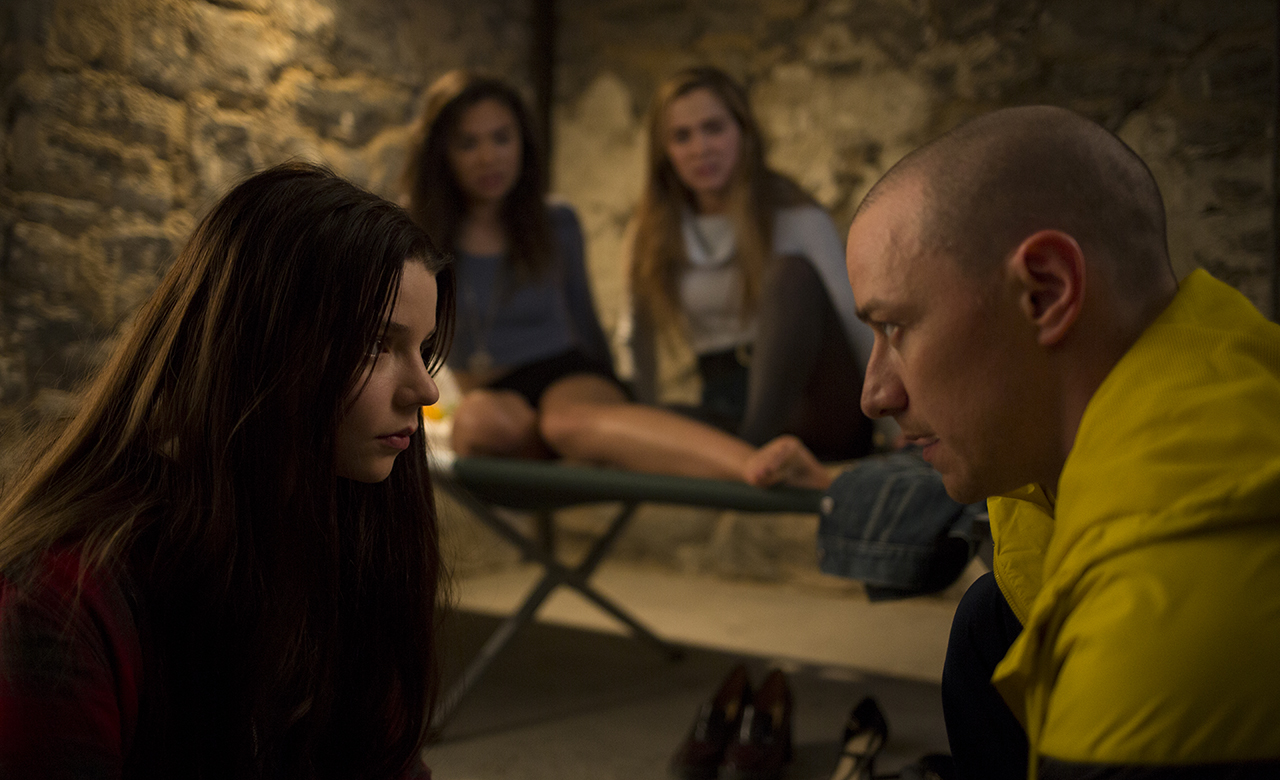
ON TRYING TO BALANCE BOTH HUMOUR AND THRILLS
"It is a tricky balance. It is fascinating because you can have the wrong humour moment at the wrong time and you detach — and you may get the laugh but it's a bad one because the stakes aren't high. And the reverse is also true. So if the stakes are at a certain level, no one would say something or react in a way that would cause a laugh in that situation, so it would be artificial. It seems almost counter that those two could exist, but I really enjoyed in these last two movies, finding these moments that can do both."
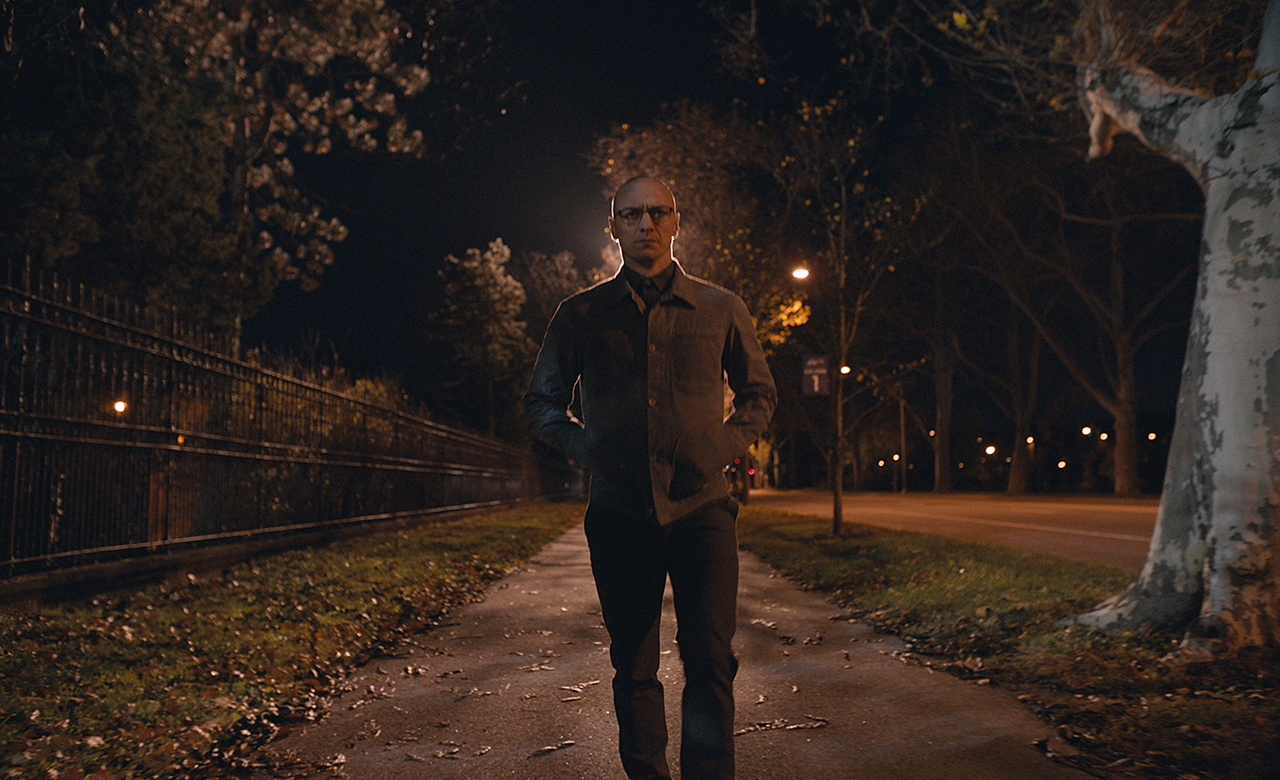
ON WRITING A LEAD ROLE WITH 24 DIFFERENT PERSONALITIES
"I mean, it's funny — you kind of just think of them as different characters. And in this movie, the premise of the disorder is that this isn't someone changing moods, these are different human beings, occupying the same body. So if you really honour that disorder, it's just writing different characters.
There are three abductors that keep these girls: Patricia, Kevin and Hedwig. So, it would be as if I had written that a group of three people had abducted these girls — a man, a woman and a child — and they try to manipulate the child to get out....It just so happens that one guy is going to play all of them."
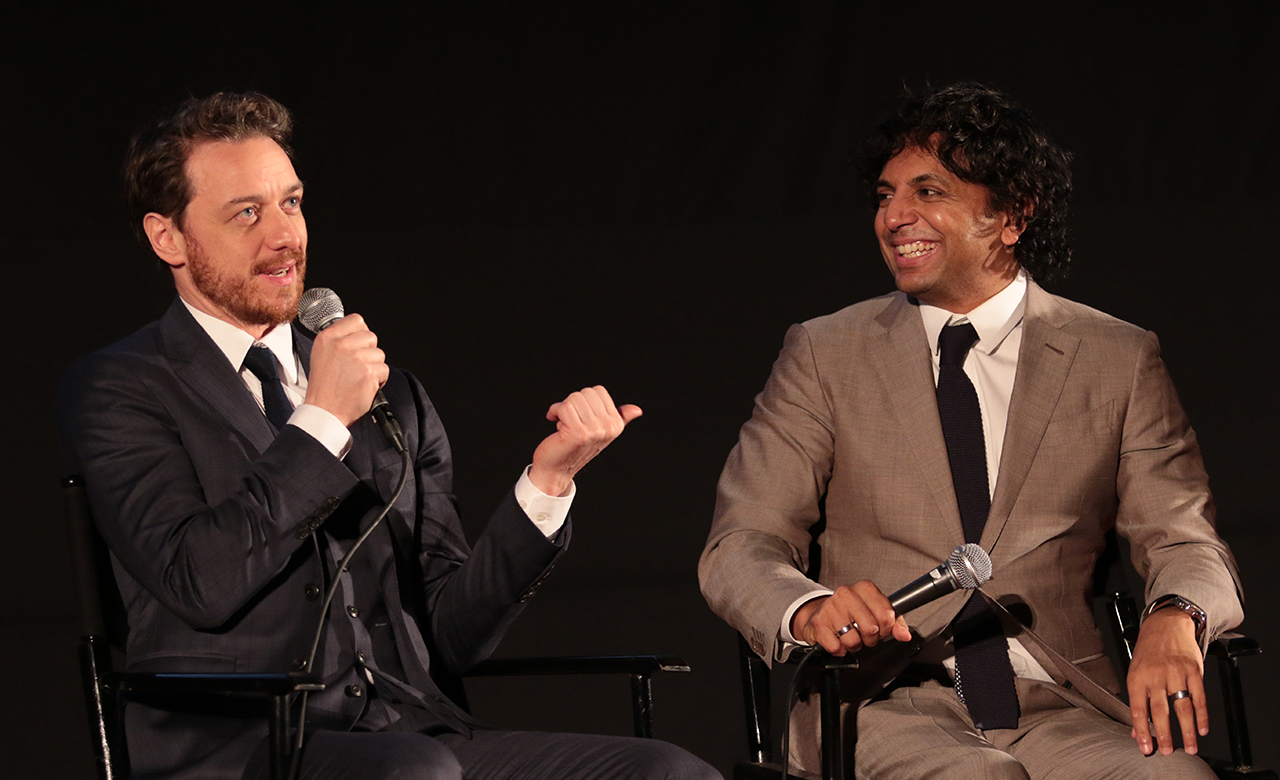
(Photo: Alex J. Berliner/ABImages)
ON CASTING JAMES MCAVOY
"I met James at Comic-Con, appropriately enough. We met for the first time, and...I just felt such a connection with him. And my headspace was so much about Kevin, and I was writing Kevin, and I was like, 'this guy can play him, I can feel it'.
There were two different moments. One was when I saw him at Comic-Con and I felt a real kind of good guy feeling — like, he's a good guy, coming right off him. That's always what I wanted for the person that played the part — that they could play it with sincerity and they could bring empathy to each of the characters. And then once I sent him the script — he was in London and I Skyped with him — and I remember getting off Skype and I was like, "I am 100 percent certain that this is the guy". Just the way he talked about the part, and his knowledge of the disorder. He was actually very aware of the disorder and had done some research into it prior to reading the script, and I could see that his approach to it was going to be right-on. And he was fearless, he was just very fearless about the whole thing."
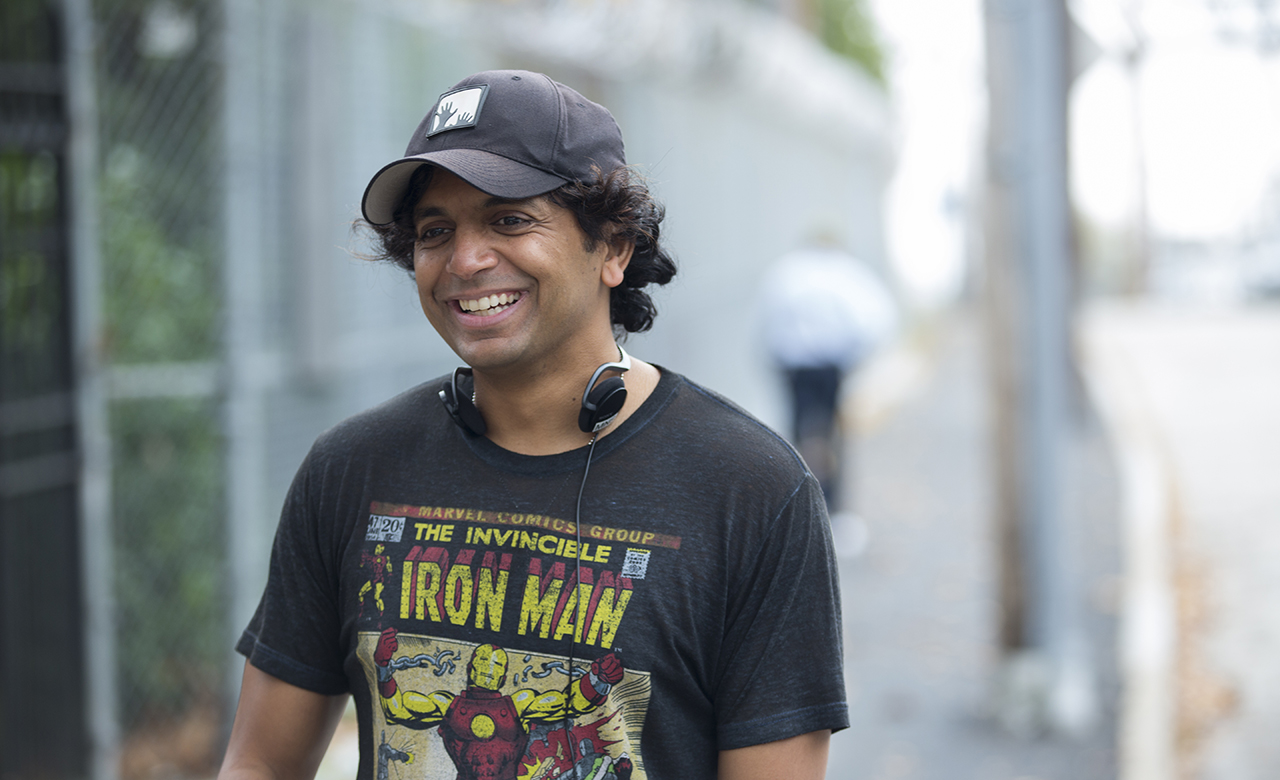
ON SELF-FINANCING SPLIT
"When you put yourself out there, financially, you're a different version of yourself. You're all in. It's a fascinating thing, you know? If you were a professional basketball player, right, and you went and played in a street ball tournament, you went outside and you went there's no referees or anything like that — you'd probably be the best version of yourself there, when you have something to be concerned about. They could hurt you, there is nobody there to say foul or anything like that. So you're hyper-concentrated.
In that same way, when you take away the safety net, you're different. And then others come to the table with that same mindset, because they can just feel it off of you literally and physically and emotionally. So you get very like-minded people on the movie, so it's this kind of hyper-commitment that comes from everyone. And then when the actors come on, they feel that too.
I feel like — even if just in my own head — the feeling that I'm allowed to do anything and it is up to me, that is a very empowering feeling. It allows me to break genre, and to do something daring, and to do tonal things that maybe I would be hesitant to do otherwise, [like] make the main character ambiguously good or bad, or have a very provocative scene, or juxtapose comedy and suspense in a way that's unorthodox. There's more choices when you make it at an appropriate budget level, which makes me feel like it's okay to be different. Not only is it okay — that's your secret weapon, that you try to make it special and you try to make it as different as you can."
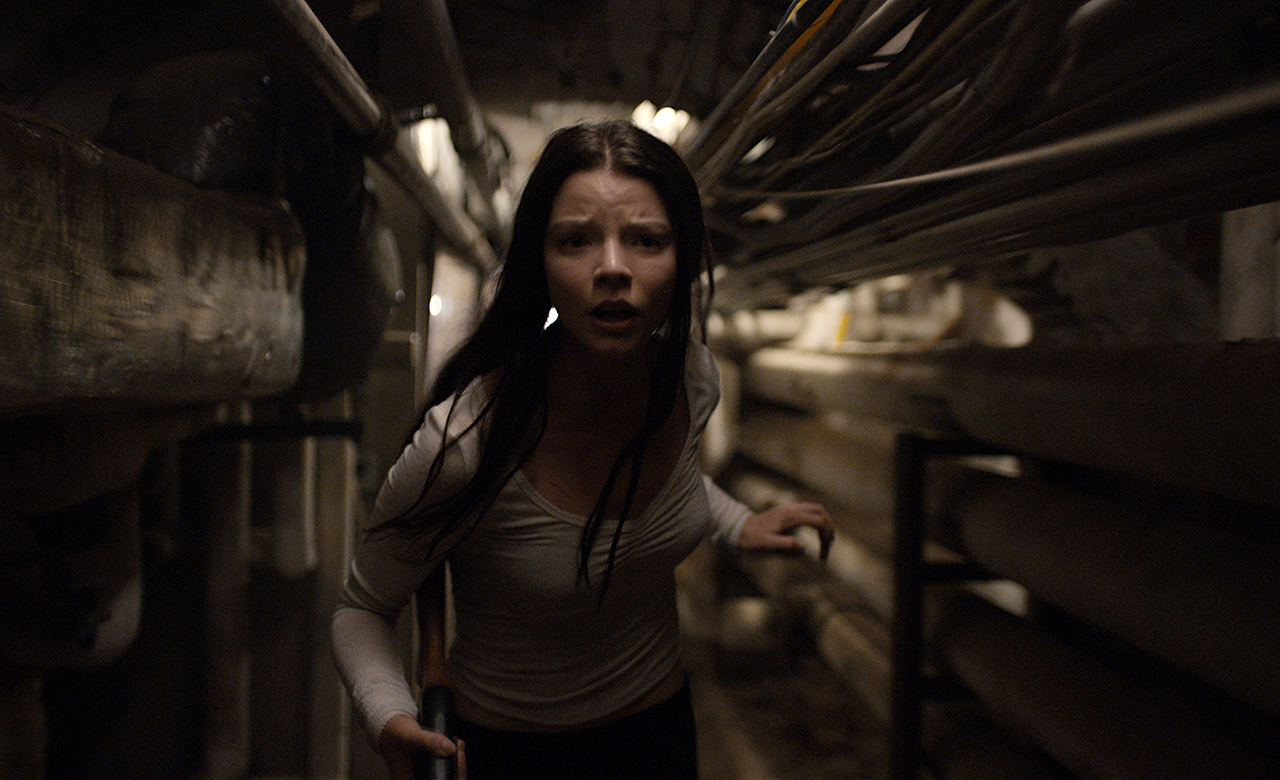
ON TWIST-FILLED FILMS THAT INSPIRED SPLIT
"I'm more inspired by the weirdest movies that you would see. For me, Robert Altman was a big inspiration for Split. And the film Cache. And Dogtooth, which was a film from Greece. Just really unusual movies were the inspiration for Split. It isn't like one-to-one like that, but of course it was those movies that have those amazing paradigm shifts."
Split is in cinemas now. Read our review here.
